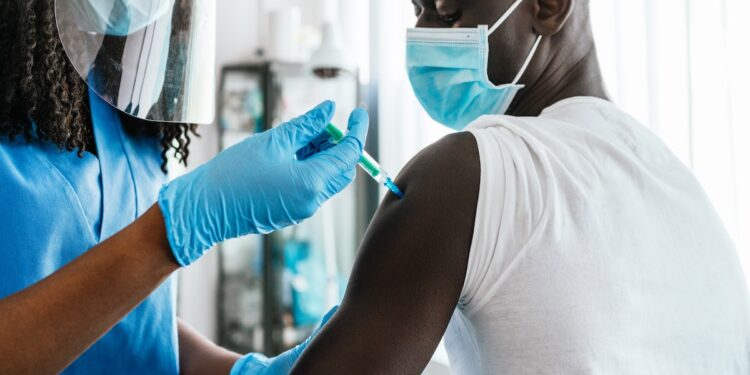Yesterday, the Food and Drug Administration (FDA) authorized the use of new COVID-19 booster shots that contain protection against two Omicron variants. These new boosters will now be the only type available as the FDA phases out the older versions. With kids back in school and COVID-19 cases still high with about 90,000 new cases per day, the updated jab comes none too soon. No matter where you are in the vaccination process, here’s everything you need to know about getting boosted.
What’s different about these boosters?
These new boosters are considered “updated” because in addition to broad mRNA immune protection against the original strain of COVID-19, both the Moderna and the Pfizer boosters contain additional immune protection against two strains of Omicron that are the cause of the majority of cases in the country: BA.4 and BA.5. These new vaccines are better equipped for protection against newer, much more contagious strains of the virus.
Do the new boosters work and are they safe?
In animal trials, both the Pfizer and Moderna booster were shown to be more effective than boosters that did not contain protection specifically geared toward Omicron variants. Most of this trial data hasn’t been released to the public, according to Science, but a small trial in eight mice showed that those who got two of the original shots and then the new booster had an increased immune response to all the Omicron variants.
There is also clinical data from an updated vaccine being used in the United Kingdom that targets the Omicron BA.1 variant that shows that a targeted booster generates a better immune response against Omicron and includes strong coverage against the original strain of the virus. However, the new boosters for the U.S. have not been tested in humans — the companies say they will begin these next month — so the efficacy in humans is so far unknown.
The data has also shown the new boosters to be safe. The FDA says that side effects with the new booster are similar to those for any other COVID vaccine, including pain and redness at the injection site, fatigue, muscle pain, joint pain, swelling of the lymph nodes in the same arm of the injection, nausea/vomiting and fever.
Who is eligible for the new booster?
People aged 12 and older are eligible for the Pfizer booster if it’s been at least two months since they’ve received the last shot of their vaccination series or had their last booster shot. If you’d rather the Moderna updated booster, you need to be at least 18-years-old, and it again needs to be at least two months since the last shot of your vaccination series or your last booster.
If you haven’t been vaccinated yet, you’ll need to do so with the original vaccine series before being eligible for the booster. That’s because the boosters contain a lower dose of the vaccine than the vaccines included in the initial vaccination series.
Kids younger than 12-years-old are not yet eligible for these new booster shots, but the updated boosters will likely be ready for kids aged 5- to 12 years-old by October.
What is the best time to get the new booster?
Now that the booster has been authorized by the FDA, millions of doses will begin to be shipped to vaccination sites across the country. Once they’re available in drug stores and clinics, you should make an appointment for a booster shot as soon as you can. COVID-19 is still circulating the country, and this coupled with an impending flu season could make for a bitter winter.
There is one exception to this rule. If you’ve been infected with Omicron this summer, it’s probably not worth getting the booster yet, according to The Atlantic. You may want to wait a bit to get the vaccine because your antibodies against Omicron are probably still high, even if you only had a mild infection, so there wouldn’t be much benefit to you getting the booster now. (That is, unless you’re at high risk for severe COVID. If you’re immunocompromised, for example, get boosted ASAP.)
Do I have to pay for the booster? (And will we have to pay for future vaccines?)
Like the initial vaccine and booster, the updated COVID-19 booster from both Pfizer and Moderna is free and paid for with federal tax dollars. However, it’s not clear how long the vaccines and boosters will continue to be free. Those without insurance could lose access to free COVID-19 vaccines and boosters in the future if Congress does not approve additional funding.
Is this the last COVID booster I’ll need to get?
Probably not. Immunity from the initial vaccines, boosters, and COVID-19 infections wanes over time. Currently, there’s no end to the virus in sight, and it continues shifting to evade the immune system’s defenses.





















